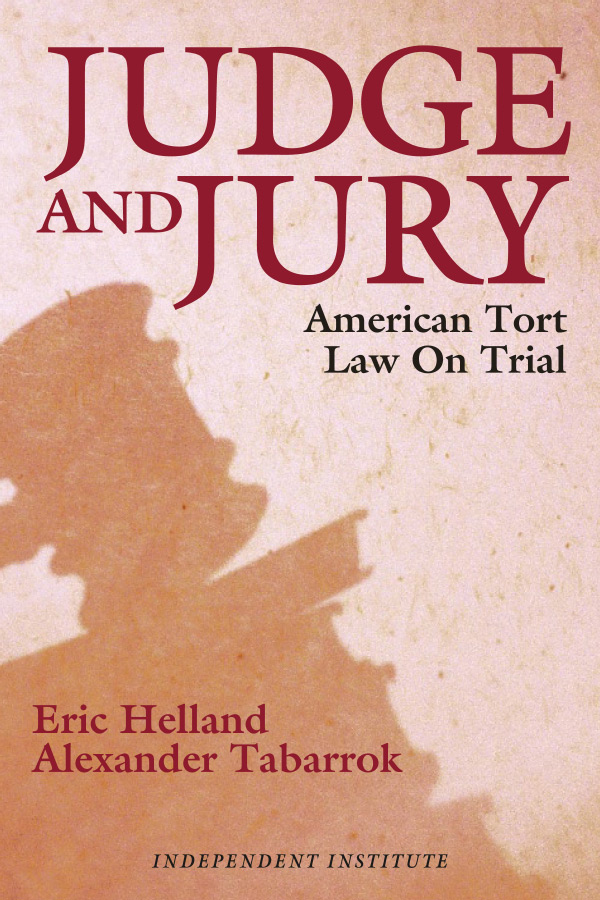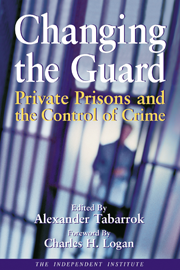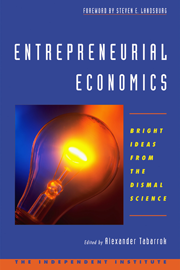Much rhetorical blood has been spilled by congressional committees and the mainstream media concerning the lessons that we should draw from the “Enron scandal.” The simplest lesson of all, however, may be the most important: congressional committees are not the place to examine financial scandals.
Almost 70 years ago the Pecora hearings featured J.P. Morgan, Jr.—the Ken Lay of his time—bouncing circus performer Lya Graf on his knee, and led to the creation of the Glass-Steagall Act that separated commercial and investment banking. Yet, as most economic historians now agree, the wave of bank failures in the wake of the 1929 stock market crash were caused not by banks speculating in shares but by the Federal Reserve’s monetary policy.
As a result of the flamboyant Pecora hearings, Congress saddled Americans with poor policies that only in recent years have reformers managed to undo. Serious reformers should guard against the possibility that the current round of Enron hearings will create similarly misguided policies.
Former SEC Chair Arthur Levitt, for example, has long been trying to stop accounting firms from selling consulting services to the companies they audit. Levitt’s efforts to change the law were blocked by Congress and President Clinton but are now receiving a more welcome hearing (look out for the circus performer). Even here however caution is in order.
The accounting firm Arthur Andersen is paying a high price for protecting its consulting business if that is why its auditors did not discover the debt structure of Enron. The lawsuits that will follow the collapse of Enron may destroy Arthur Andersen as well. Every auditor in the country is now reviewing reports to check for Enron-like oversights. Auditing is, at the most basic level, about reputation and trust. Thus, it remains to be seen if Congress and the SEC can improve on the punishment the market will exact from Arthur Andersen.
One lesson we are all supposed to draw from Enron is that hype led employees to place “too much” of their savings in the company pension plan. The usual recommendation is to limit the amount an employee may place in his company’s plan in an effort to force small investors to diversify. What is missed in the analysis is that Enron matched employee contributions, thus reducing the price of speculation. Enron stock was a gamble but it was a gamble subsidized by Enron. Other people were not so lucky.
Investors who put all their money in Yahoo! stock, for example, experienced a greater percentage decline than that experienced by Enron employees; are they any less deserving of government protection? Efforts to force investors to behave intelligently miss the point that people may have different risk preferences. After the fact, the winners celebrate their good fortune and the losers go on “20/20” to ask the taxpayers to pay off their failed bets.
The third lesson that fourth estate chatterers would like us to learn from Enron is that the little guy has the right to commit fraud too. Let us explain. One of the criticisms of Enron is that it prevented its employees from selling stock while management cashed out. But the most troubling allegation is that Enron hid its debts and in effect defrauded those who purchased the stock. Thus, what Enron’s employees are complaining about is that they also were not able defraud investors because Enron prevented them from selling their company stock. On behalf of those not holding Enron shares, we thank Enron for limiting the damage.
The final lesson not to learn is about the evils of high level contacts between industry and government. The notion seems to be that Enron’s contacts in the administration somehow constitute a smoking gun. True, but the government is holding the gun.
Enron and other firms lobby government because that’s where the money is. Long before the 2000 election, Enron and its affiliates received more than $1 billion in loans and other assistance from the federal government. Nothing underhanded was involved, however, just the usual corporate welfare from the Overseas Private Investment Corp. and the Export-Import Bank of the United States.
On the face of it, however, the Bush administration should be praised for its handling of Enron’s calls for help. It turned a deaf ear. If only the administration had acted similarly when the steel lobby demanded tariffs. Add together all the damage done to the U.S. economy by the Enron scandal, including the harm done to investors, employees, and taxpayers and it will still fall far short of the billions of dollars that steel tariffs will annually cost the American consumer. Now, that’s a scandal.
The Real Enron Lessons
© 2002 The Independent Institute. Permission is granted to reprint or broadcast this article if credit is given to the authors and to the Independent Institute. Nothing in this article should be interpreted as necessarily reflecting the views of the Indep
Alexander T. Tabarrok is Senior Fellow at the Independent Institute, Assistant Editor of The Independent Review, and Associate Professor of Economics at George Mason University.
Eric A. Helland is assistant professor of economics at Claremont-McKenna College, Claremont, CA.
Comments
Before posting, please read our Comment Policy.












